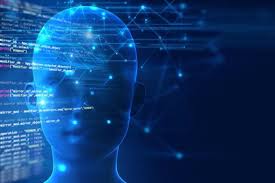Technology's Impact on Mental Health
TABLE OF CONTENTS
- Introduction
- Dark side of the screen
- The role of social media
- Technology as a tool for mental wellness
- Finding balance
- Conclusion
- References
Introduction
In the modern digital age, technology has become an integral part of our lives, offering unprecedented convenience, connectivity, and access to information. However, the rapid pace of technological advancement has also raised concerns about its potential impact on our mental well-being. Like a double-edged sword, technology can both enhance and harm our mental health, making it a complex and multi-faceted issue.
The Dark Side of the Screen
One of the most concerning aspects of technology's influence is its potential to exacerbate mental health issues like anxiety and depression. The constant barrage of notifications, the pressure to curate a perfect online persona, and the fear of missing out (FOMO) can be overwhelming. Social media, in particular, has been linked to feelings of inadequacy and social isolation, especially when comparing oneself to the often-unrealistic portrayals of others' lives online.
Furthermore, excessive screen time disrupts sleep patterns, a crucial factor for mental health. The blue light emitted by electronic devices suppresses melatonin production, the hormone that regulates sleep-wake cycles. This can lead to difficulty falling asleep, fragmented sleep, and daytime fatigue, all of which contribute to feelings of stress and anxiety.
Technology can also be a breeding ground for cyber bullying and online harassment. These experiences can be incredibly damaging, leading to feelings of worthlessness, social anxiety, and even suicidal ideation.
The role of social media
Social media platforms like Facebook, twitter, tiktok, Instagram have become integral part of daily life for many people. While these platforms offer valuable ways to connect and share, they also create an environment ripe for comparison, which can negatively impact self-esteem.
- Likes and followers:
Social media platforms quantify popularity and validation through likes, comments, and followers count. This quantification can lead to constant self-evaluation and comparison, as users may equate their self-worth with these metrics.
- Social comparison thinking
According to social media comparison theory, individuals determine their own personal and social worth based on how they stack up against others. People tend to share the best moments of their lives on social media, creating “highlighting reels” that do not accurately present their everyday experiences. This selective sharing can lead viewers to believe that others lives’ are more exciting, successful, or happier than their own. This will later lead to low self-esteem and depression.
Technology as a Tool for Mental Wellness
Despite these challenges, technology also offers a wealth of resources for promoting mental well-being. Here are some key aspects to consider:
- Teletherapy and Online Support Groups:

Technology has revolutionized access to mental health services. Teletherapy allows individuals to connect with therapists remotely, eliminating geographical barriers and reducing the stigma associated with seeking professional help. Online support groups offer a safe space for individuals to connect with others who share similar experiences and provide peer-to-peer support.
Mental Health Apps:
A growing number of apps cater to various aspects of mental health. These apps can offer relaxation techniques, mindfulness exercises, mood-tracking tools, and even access to therapy chatbots. While they should not replace professional help, apps can be valuable tools for self-management and provide support in between therapy sessions.
Mindfulness and Meditation Technology: Several apps and wearables guide users through mindfulness exercises and meditation practices. These practices have been shown to reduce stress, improve focus, and promote emotional regulation.
VR technology has emerged as a promising tool for treating anxiety disorders such as phobias and post-traumatic stress disorder (PTSD). VR programs allow users to confront their fears in a safe and controlled environment, facilitating exposure therapy.
Finding Balance: A Digital Detox for a Healthy Mind
The key to harnessing technology's potential for mental well-being lies in establishing healthy habits and boundaries. Here are some tips:
- Set Screen Time Limits: Be mindful of how much time you spend on electronic devices. Schedule breaks throughout the day and avoid using screens for at least an hour before bed.
- Curate Your Social Media Feed: Unfollow accounts that make you feel inadequate or anxious, and prioritize those that inspire and uplift you.
- Embrace Real-World Connections: Technology can't replace the value of face-to-face interaction. Make time for activities with loved ones, engage in hobbies, and prioritize social connections in the real world.
- Practice Digital Mindfulness: Be present in the moment. When using technology, focus on the task at hand and avoid multitasking.
- Seek Professional Help: If you are struggling with mental health concerns, don't hesitate to seek professional help. Technology can be a valuable tool in your mental health journey, but it should never replace a qualified therapist.
Additional Points to Consider
- The digital divide: Unequal access to technology can exacerbate mental health disparities.
- The ethics of mental health apps: Data privacy and the potential for misuse of mental health data are critical concerns.
- The future of technology and mental health: Explore emerging technologies like artificial intelligence (AI) and their potential applications in mental health care.
Conclusion
Technology's impact on mental health is a complex and evolving issue. While it can exacerbate existing problems and create new ones, it also offers valuable tools and resources for promoting well-being. By striking a balance and fostering healthy digital habits, we can leverage technology's potential to create a more supportive and positive environment for mental health.
References
https://papersowl.com/examples/impact-of-technology-on-mental-health-challenges-and-solutions/










Top comments (0)